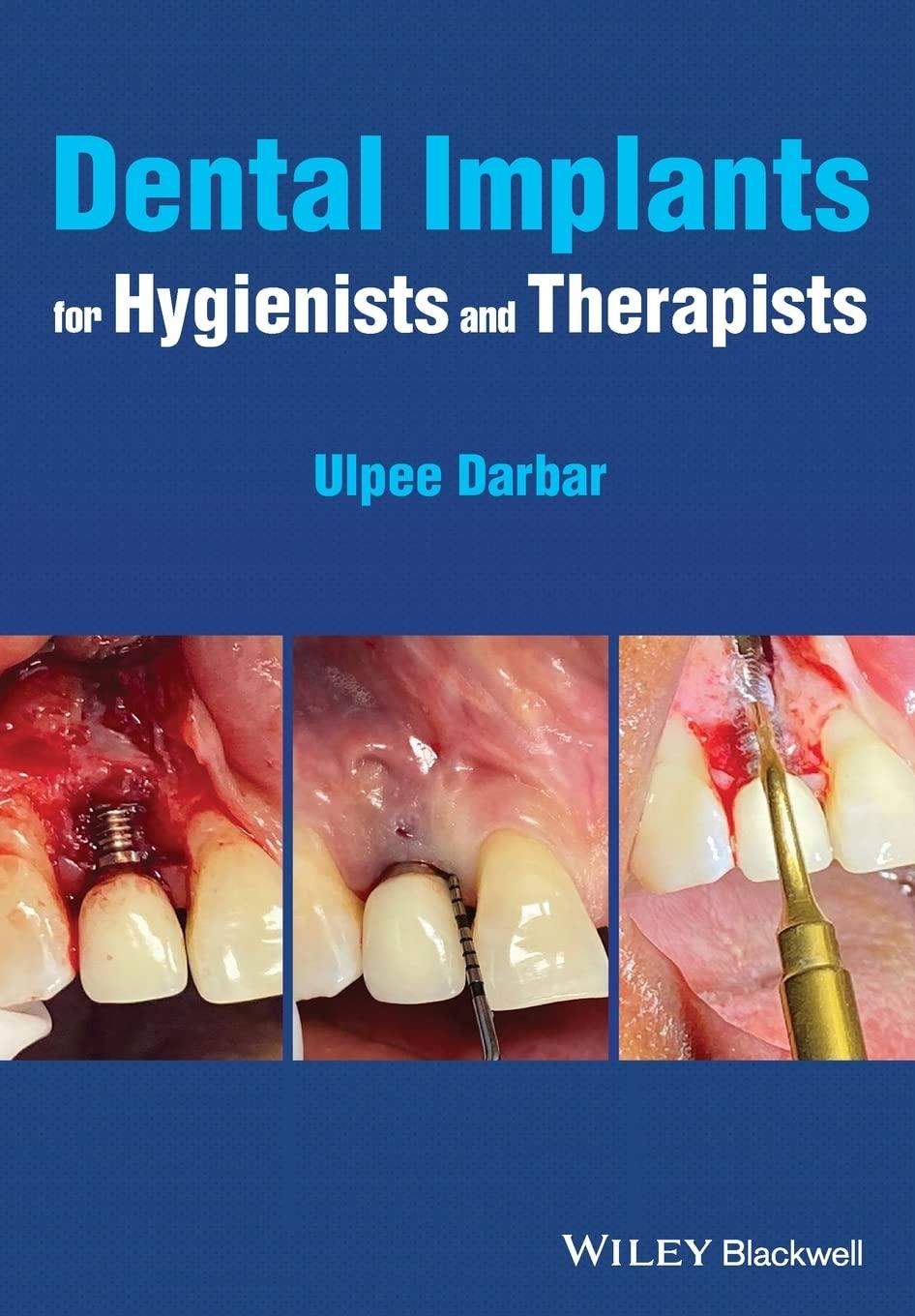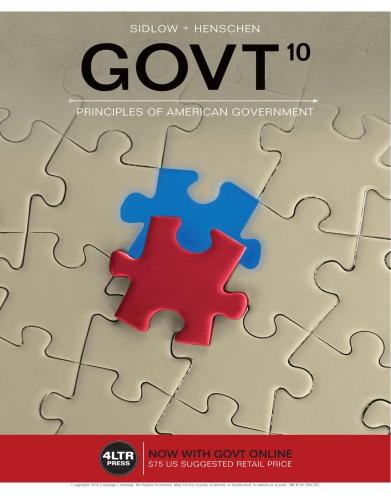Random
documents with unrelated content Scribd suggests to you:
26th.—I went to the Museum. Fontana appointed me at ten. The institution was founded by the Grand Duke Leopold, and placed under the direction of Fontana. Thirty-eight rooms are filled with objects in every branch of Natural History, Philosophy, Physics, etc. The anatomical preparations in wax are very beautiful. The small representations of the ravages of the plague at Messina are admirably executed; the artist must have had a considerable portion of sombre in his imagination.
I asked the real history of the tarantula, whether he thought there was any foundation for the stories they tell in Calabria of its producing such violent irritation that motion, such as dancing, relieves the patient. He says such a malady exists, and is ascribed to the sting, whereas it proceeds from the imagination of young people. Those who suffer chiefly are adolescents, just at the period when the passions begin to develop themselves and agitate the frame. Those who believe in the reality of the disease tell the story of an incredulous bishop who, resolved to convince the people of the absurdity of the story, exposed his arm to the stings of five of these animals; the consequence was that the bishop suffered like a layman, and the tambourine was called to his relief to assist him cutting capers. Whether this dignified prelate was imposed upon, or whether he thought the superstition too valuable to eradicate, must remain a secret between him and his confessor.
Bishop Burnet records a similar anecdote of Lord Lanesborough, who upon the death of Prince George of Denmark requested an audience of Queen Anne. He obtained it, and advised her Majesty to dissipate her chagrin by dancing, as he had always found that to be a sovereign remedy against bodily and mental affliction.
Fontana has made numberless experiments upon the poison of a viper It is a glutinous mass in which he has never discovered the noxious ingredient; taken into the stomach, it is not prejudicial, it only acts upon the nerves. He has published in several quarto volumes his opinions on the subject. He entered into a long philosophical dissertation on the vital principle. He has worms or eels in which life is suspended, but he can bring them to existence. They came in diseased corn from the Morea. He has drawn conclusions from his
experiments which prove too much for the Church to allow him to publish. He is an apostle in the cause of atheism and democracy, hence it is not likely he will make the world happier or wiser.
In the evening I went to Lady Hervey’s instead of the Opera. D’Armfeldt was, as usual, the hero of the conversation and of his own story. He begs compassion so much that one is tempted to withhold it. The Regent, by this post, has withdrawn 1800l. of his appointments; but why does he expect favours of a man whom he accuses of an intention to poison the young King? He told several stories that prove him dans les bons principes for a soldier; he thinks every bullet has its billet. He told of a young man skulking from fear behind an ammunition waggon, yet killed by a random shot. He made great use of this to encourage his men not to flinch.
AFFAIRS IN FRANCE
News of a bloody battle near Quesnoy: 6000 French killed 4,000 Austrians.[65] How dreadful! This conflict will not close until Europe is deluged with blood and society destroyed. The trial of Orleans, or, as he ridiculously styles himself, Egalité, is about: the chief accusation against him is his having voted for the King’s death. Bad as that was, yet he did poignard à la gorge. Lyons is in revolt against the Convention. The poor Royalists have been defeated in Brittany.
27th June.—This fatal day seven years gave me, in the bloom and innocence of fifteen, to the power of a being who has made me execrate my life since it has belonged to him. Despair often prompts me to a remedy within my reach. ‘To enjoy is to obey,’ to be wretched is to disobey; if Providence interposes not for my relief, may I not seek it? Nature is assisted to relieve us in our diseases—why not to terminate those of the mind? My mind is worked up to a state of savage exaltation, and impels me to act with fury that proceeds more from passion and deep despair than I can in calmer moments justify. Oftentimes in the gloom of midnight I feel a desire to curtail my grief, and but for an unaccountable shudder that creeps over me, ere this the deed of rashness would be executed. I shall leave nothing behind that I can regret. My children are yet too young to attach me to existence, and Heaven knows I have no close, no tender ties besides. Oh, pardon the audacity of the thought!
28th June.—In the evening, Ly Spencer, Duchess, and Ly Bessborough arrived. They came the Perugia road: rather discomposed at finding T. P. gone, but it certainly was wise in him to decline the embarrassment of a tedious, troublesome journey with them. I went to the Opera; it was the last night of the Pergola.[66]
29th.—Drew dined with me. He seems half discontented with his new friends. Supped with Ly. B. Three hundred cannon are playing upon Valenciennes. St. Leger is with the D. of York, and besieging it with the allied army. Marat has declared to the Convention that Gaston is advancing to Paris; there are three Royal armies, and more than half France has declared itself in a state of counterrevolution. But these are but flying reports.
30th June, Sunday.—Dined at Ld. Hervey’s: he appeared much agitated, probably at the prospect of his removal from this place, as it will be impossible for Ministers to allow him to remain after his behaviour to the Grand Duke. In those letters which he wrote remonstrating against the exportation of grain from Tuscany to France he calls the Grand Duke a fool and Manfredini a knave. I went to the Opera with Lady B. and supped with her. She is much improved in her walking; but what cures may not be received from this delicious climate! She is to pass the summer at Lucca Baths.
1st July.—Lady Shelley has promised to take care of my children; her husband, Dr. Stuart, is a very good physician. Ly. Ann[67] is still invisible, at least to men. She is a frolicsome Irish widow bewitched, very pretty, very foolish, and very debauched. The French fleet is in force at Toulon: where is Ld. Hood? The Jacobin Club here is in full exultation at the bad news from the allies.
D’ARMFELDT
Armfeldt told us that Anckarström, as he was conducting him to execution, implored his pardon, saying he should die contented if he could obtain that, as he was the person most injured, for in his sovereign he lost a friend and a benefactor. The King refused to hear the name of his murderer. Armfeldt had the command of an army in a campaign against the Russians, in which service the King accompanied him and shared the hardships of the common soldiers.
There was a victory obtained by the Swedes upon the ice Dangers of every sort surrounded them; the sun was very ardent and the ice was cracking beneath the surface. The Swedes had a great advantage, their horses being shod; the Russians had not taken the same precaution. Armfeldt said that the King’s aide-de-camps, unless they died of the plague or indigestion, need not fear death; they hid themselves in the moment of peril. The King would never settle a plan for retreat, as he would not allow it possible that he could be defeated. Such courage as this is often ruinous to the country whose monarch is brave. Portugal smarted from Sebastian’s[68] impetuosity; in vain his old generals remonstrated, he listened to his ardour. On his landing at Ceuta, the musicians, instead of striking up a cheerful air to encourage the soldiers, played a solemn dirge: in superstitious times what a contretemps! Besides this melancholy portent, he stumbled on a corpse as he got out of his ship.
A fine ball in the evening at Lord Hervey’s: Mme. d’Albany introduced me to Alfieri. I took a final leave of d’Armfeldt. I was sorry to bid a farewell to my friends, but a very few months will bring us together, I hope. La Flotte, the French Minister, was not invited to the ball: this is a very marked insult at a neutral Court.
July 2nd, Tuesday.—I parted from my children this morning at eleven. I have left them comfortable, established in a good house with proper attendants, and Dr. Stuart and an Italian physician, Gianetti, to take care of them. The day was delicious, ardent sun, deep blue sky, everybody was gasping from the heat; I alone as cold as marble, but inwardly warmed by the glowing sun.
Prato is the first post, a pretty little town; put me in mind of La Bonneville in Savoy It is situated at the foot of a range of calcareous hills forming the sides of a crater of considerable extent. We continued in this plain till we reached Pistoja. The heat being too intense to remain in the carriage, we stopped two hours at Pistoja. Two miles from Pistoja we began ascending the high chain of Apennines, which runs across Italy and divides it from Cisalpine Gaul, or Lombardy. About half-way up the hill to the first
CROSSING THE APENNINES
post we stopped to look back upon the valley Florence, Pistoja, Prato, the Umbrino meandering in the plain until it reaches the sea at Leghorn, made a lovely coup d’œil. The project was to travel all night, but my face pained me so much that by an extraordinary degree of complaisance I was allowed to stop at St. Marcello, a delightful little inn.
Wednesday, July 3rd.—I was enchanted with the prettiness of the environs of the inn: just opposite my window there is a steep verdant bank shaded by tall cypress. The hills above are studded with chestnut, ilex, beech, the wild cherry, and vast assemblage of pretty trees. Passed through a neat town, to which our inn was a suburb. Kept ascending for miles. A magnificent torrent roaring at our feet and the sharp pinnacles of the Apennines springing above our heads. The industry of the inhabitants is manifested by their cultivating every little spot that is accessible to the foot of man, and success warrants their enterprise, as the production is abundant, and the walls prop up the little field.
These mountains must have afforded a secure asylum to those numerous predatory bands which infested this delightful country in former days; the bold robber might bid defiance to the vigilance of the Holy Brother. Indeed, the wretched state of society about the Middle Ages must have rendered travelling a service of danger, from the perpetual wars between each petty State, the burdensome jurisdiction of the barons, and the outrages committed by outlaws.
We dined at the post-house within 300 yards of the top of the mountain which we had been crawling up all day. The summit is the boundary of Tuscany and the frontier of the Modenese State. We began descending this side of the mountains; much more beautiful than the other, springs of very clear, cool water afford a delicious draught to the exhausted, weary traveller Torrents and cascades tumbling from the heights between thick groves of pines down the sides of the mountains till they reach the torrent in the valley, which is there called the Scoltenna, but soon after changes its name and becomes the Panaro. Snow is still lying in the crevices of the mountain; the rays of the setting sun produce a pretty effect upon the white masses intermingled with woods and sharp rocks. The
chaussée in these States as fine as any in Europe; indeed, except those in the Austrian dominions, I believe no roads can be compared to those of Italy. The peasants work in their agricultural toils armed— a sad memento of the terrors of those times when such things were necessary. How dreadful that the most useful members of the community were exposed, whilst labouring for the benefit of mankind, to outrages that demanded self-defence!
At Barigazzo, a small volcano like Pietra Mala. A flame issues from the ground and burns without having anything to feed on, till extinguished either by a high wind or by water; it is used to burn lime. Muscovite is found in large quantities in this mountain. To the S.-E. of the village, upon the top of the mountain, a large lake, called Lago Santo, because blessed by the Bishop of Lucca; it has most miraculous properties. The night was heavenly: the splendour of the stars above and the millions spangled upon the surface of the earth formed by the Luccioli, produced a glittering scene that dazzled the eye; to add to the brilliancy, a black cloud, distant in the horizon, emitted flashes of bright lightning. The vivacity of the light almost too much. Such must have been the splendour surrounding the God of Thunder when he showed himself dans tous ses atours to the astonished eyes of the curious Semele. We travelled all night and reached Modena at 5 o’clock in the morning.
Thursday, 4th July.—I already feel the difference between the heat of Lombardy and the refreshing breezes of Florence. I am just going to see the Guercinos at the Palace. L’homme propose, Dieu dispose, the custode was eating, drinking, or sleeping; I could not gain admittance. Arrived at Parma about 6 o’clock. Slept there. I saw Parma last October. The ‘St. Jerome,’ the ‘Madonna della Scodella,’ the ceiling of a dome in a church, are some of the finest of Correggio.
THE PLAINS OF LOMBARDY
Marat has resumed his functions in the Convention. We crossed a dozen ferries in the night, and reached Placentia soon after daybreak.
5th July —Saw the Ducal Palace, the equestrian statue, Cathedral, and St. Augustin. Alberoni was a native of this city. Crossed the Po at the gates of the town. Very near meeting with an ugly accident in getting out of the boat; the banks were steep, the mud very deep, the carriage rolled considerably back into the water. Our cook we were obliged to pass as a Swiss, Frenchmen being refused admittance into the Milanese. Rice plantations and deep sands to Lodi. Arrived at Milan at 12 o’clock. The Palmerstons, Sir Benjamin Thompson,[69] and Sir C. Blagden here.
Saturday, 6th.—The heat unbearable; close suffocating feel, like a hot day in England. Miss Carter and Sir Benjamin dined with me. After dinner, instead of the custom of the country to take the siesta, I took a long-winded discourse from Sir Benjamin upon politics, happiness, morality, etc. He thinks Dumouriez was bribed by the Austrians throughout his career. Saw my old acquaintance Csse. Maxe. Her present cavaliere servente is her husband’s brother, and her husband is the bon ami of his elder brother’s wife, the Marchesina di Litta. One must learn not to stare at these connections in Italy; they are not uncommon.
7th July, Sunday.—Left Milan at 10 o’clock. We intend, if the Grand St. Bernard is free of snow and French, to cross it, and get by that route into Switzerland. Crossed the Ticino at Buffalora; it was very low compared to the floods of last year. Found letters pressing us to stop at Château de Masin in the valley of D’Aost on our way to the mountain. We shall there find the Trevors, T. P., and Swinburne. We slept at Vercelli, for though it was not late when we arrived, yet it was too far to Masin to attempt to reach it by their supper hour
8th.—Set off at 4 o’clock in the morning, changed horses at Germano, and those horses conveyed us hither This antique structure is a baronial castle upon the summit of a high, isolated rock, overlooking a rich plain in which the Dora Baltea meanders fantastically. To the north is the entrance into the valley D’Aost, backed by the Alps, among which is St. Bernard. To the east the Plain of Lombardy, with a distant view of Milan. Villages, towns, lakes, rivers, hills, and all the beauties of nature and art may be discovered from the lofty towers of this venerable abode. This castle
has undergone many sieges from the French; before the introduction of gunpowder it was impregnable, and even since its use it has held out. In 1554 Maréchal de Biron received just under my bedchamber window the wound which made him a cripple for life. The old walls in many places are loaded with the cannon balls which have been poured by volleys into them. The room we dine in is vaulted and bomb proof; the ceiling and cornices are decorated by the arms of Masin quartered with those of the greatest families. I saw those of Austria in several escutcheons.
The Count Masin is a well-bred man of a certain age, hospitable, and doing with dignity the honours of his house, where plenty and luxury are united. He is proud of his high descent and alliances. He showed me amongst the armorial bearings a stirrup with the motto ‘Ferme toi.’ An ancestor of his in battle lost all his weapons, desperate he took his stirrups and assaulted his antagonist, and his sovereign Lord in honour of the achievement allowed him to take the quartering as an emblem of his courage.
CHÂTEAU DE MASIN
In the evening we drove about the alleys; high, clipped hedges on each side defended us from the evening breeze, which in this high spot is more than a breeze generally, but was this evening insufferably hot, more from a stagnation in the air than from the positive degree of heat. The doubts increase about the passage of the St. Bernard; at all events we intend going to Aost. In the evening the letters from Turin arrived. I had a letter from Ld. Henry,[70] and he writes out of spirits; complains of solitude. He dislikes his appointment to Stockholm. A courier saw Mayence in flames on the 27th June; if it has fallen it will facilitate our journey up the Rhine.
We retired early to our rooms. My apartment was curious and magnificent. It consisted of a bedroom, a dressing-room, a receivingroom, besides accommodation near for my valet-de-chambre and my maid. The bedroom is a bastion, which makes inside a delightful circular room; a balcony goes round it, and from the spot where I was this minute, from it down to the fosse, is upwards of 100 feet. A private door opens upon a spiral staircase, which carries one to the porte-de-secours. I dismissed my maid, and sat me down to write,
read, and think. The wind rose and made a most furious noise in my chimney, and in the vaulted rooms beneath. I could not help thinking that if an ancestor of Masin’s were to appear and tell me some horrid tale of his unburied bones rotting in a dungeon in the towers of the castle, a more hideous noise and crash would not usher him in than what I have heard. In the midst of this reflection I perceived upon the large glass on the left of me, and which stands opposite to the doors of a long suite of apartments, all open, a glimmering light, and I heard at the same moment a noise from the rooms. I am no coward with respect to supernatural appearances, but I was out of spirits, and the solitude of my situation apart from the rest of the family contributed at that moment to give me a qualm. I looked at the glass, and perceived the light stronger and some white drapery flowing behind it. Pour le coup I trembled and hid my face. A minute brought Swinburne with a night taper, in his dressing gown, to my sight. I laughed at my fears. He came from Mrs. Trevor, who was ill, to get some camphor julep from me. I locked my door and was courageous enough to go to bed without rousing anybody.
Tuesday, 9th.—We were to have gone this morning, but our journey is deferred. Passed the day pleasantly enough. Trevor went to Turin to meet General Grenville. Mrs. Trevor crosses the mountain. We shall, if it is possible for any of us to go across.
How much I detest the prospect of a residence in England, even though it be but for a few weeks; country, climate, manners, everything is odious to me. Il faudra se résoudre à souffrir. Patience, pazienza. Left the hospitable castle early in the morning. We descended the steep hill, upon which rises majestically the castle, into the plain towards Ivrea, an ancient fortified town distant only five miles from Masin. The walls are now repairing, and the whole is getting into a state of defence with the utmost expedition. The King of Sardinia is now making a progress through this part of his dominions. This costs him 25,000l. in useless pomp, and he receives a subsidy from England of 200,000l. To the right a castle, very picturesque in its situation, called Mont’alto; the hill upon which it stands is composed of calcareous earth from whence the lime used in the country is drawn.
VAL D’AOST
We entered the Val d’Aost at a narrow pass at the Pont St. Martin, an old bridge across the Dora. The weather was delicious, the change of the climate very perceptible already. We dined at Donnaz, a small village placed in an excavation of the rock, supposed by some to be a work of the Romans. Our whole party met at dinner. Trevor defers his return to Turin until he has seen us all well over the mountain, as his interposition may be necessary to get us mules. Fort le Bard, about half a mile from Donnaz, a strong mountain pass, assisted by art. Nature has given it a rapid river and mountains; Vauban, ramparts and cannon. The mode of training the vines is singular. They are trailed upon a treillage horizontally placed upon stone pillars; they are from 4 to 5 feet and even higher from the ground. It is admirably adapted for catching the warmth of the sun. The valley is at the widest half a mile, but it is generally narrower. The oxen are very fine, and the manner of yoking them is very picturesque. We went on six miles beyond where their party slept to Chatillon, where M. Regis gave us very good accommodation in his house, and his company. He is a friend of Masin, or rather a dependant. On the road I got out at Monjovet, celebrated for fine steatites and garnets imbedded in quartz; I obtained a few specimens.
The Piedmontese army are upon the Petit St. Bernard; the French are at the foot of it by the Isère. Each army has not more than 3000 men. The troops are very sickly, the hardships they have encountered are incredible; the barracks are absolutely upon the top of the mountain, a post which is not much benefited by the climate of August. Numbers are in the hospital at Aost, and we are alarmed by hearing of an epidemical disorder being among them.
Thursday.—Though the Trevors were six miles behind me, they were diligent enough to pass me before even I was out of my bed. The road from Chatillon lies by the Dora. The Dora Baltea is a rapid torrent, which runs into the Po near Turin. The Isère rises on the French side of the mountain, and finds its way into the Rhône. The Dora comes raving with great impetuosity and swiftness—a just emblem of time, that rushes forward and never is retarded. It gave me the vapours to think of the many misspent hours I have
irretrievably lost. Half my time is spent in making resolutions to amend, but the precious moments escape when to begin, for as some ancient poet says, ‘He that leaves for to-morrow that may be done to-day is like the countryman waiting upon the banks of the river to cross when the waters have run by and left it dry.’ About five miles before we reached Aost we caught a magnificent view of Mont Blanc; the whiteness of it was dazzling.
Aost or the Cité, as it is called here, is an ugly town. We are lodged at the Baron d’Aviso’s. I have this instant heard that the distemper is contagious, and that the master of this house is dying of the epidemical fever. The intelligence is not pleasant, but I rejoice at my children being out of the way. I am kept up from the melancholy that surrounds me; the bell never ceases its doleful knell of death, the muffled drums announce under my window a funeral, and the stir in the room below where I sleep is a proof that the poor invalid is still alive, though probably in anguish. We are advised against going out of the house, a precaution that probably is very necessary. Mrs. Trevor fears we may be obliged to pass another day here.
MT ST BERNARD
Friday.—The whole morning in making arrangements about mules; at last the Commandant gave an order, and we have obtained some. The price they ask is exorbitant, 70 louis for our carriages, both of which are very light—one at least is. I have stolen some of the Baron’s specimens of minerals; my conscience smites me almost for the plunder. At six in the evening we set off for St. Remy. My journey there was not pleasant as to my monture, for my own saddle was broken, and I was, after shifting from pack saddles, etc., obliged to submit to be chucked upon a sack of wheat on a bête-de-somme. The muleteer considered me as a bale of goods entrusted to his care to convey without damage, and so far thought of me, but not the least as to my ease or comfort. As much as I could see of the scenery by daylight very beautiful. La Cluse very pretty, but we did not reach St. Remy till twelve o’clock, all tired and cold, and such an inn! But it did shelter us from the bleak wind, and that was a point gained.
We set off at half-past five o’clock to cross the famous mountain of St. Bernard. It has only been used by travellers since the Mont Cenis has been shut up by the neighbourhood of the French. I went in a chaise à porteurs. Our carriages were dismounted and placed by piecemeal on mules. We began ascending from St. Remy. The mountains are from their base bare and without much vegetation, the road so embarrassed with snow that I thought it impracticable for the mules to bring the carriage. Just above St. Remy there is a forest of larches, which the inhabitants preserve with the most religious care, as their own safety is interested in its preservation, for it protects them from the avalanches or chûte des neiges, so fatal in these countries. The path is very narrow and rugged; here and there immense blocks of granite intercept the passage, difficult to be clambered over, but no precipices to terrify and make the head giddy. Little torrents running down like cascades, the snow in many places very soft, yielding readily to the pressure of the men’s feet.
In about three hours from St. Remy I reached the Convent. The plain on which it stands is about two acres in extent; a black-looking lake adjoining it was frozen. Eternal snows surround this peaceful, melancholy dwelling, but the warmest charity issues from the bosom of its inmates. Distress is claim enough to rouse them to every action of spirited humanity. On a rock close to the lake stood a temple to Jupiter, dedicated, some say, by Hannibal in his passage across the mountain. Numbers of ex-voto are found here, a proof that it was considered as a perilous pass by the ancients. It is the highest habitation in the old world. It is 1246 toises[71] above the level of the sea. A strong sense of active benevolence can alone induce men to abandon the charms of the habitable world for this triste séjour. The clavandier or steward of the Convent offered us every refreshment. I accepted willingly some strong wine, and wrapped myself in eiderdown for a couple of hours. The fine dogs known for their sagacity in seeking the bewildered traveller lost under a mass of snow were not at home; they were ranging over the mountain.
I turned my back on Italy with regret. The men carried me backwards down the mountain. The snow on this side very deep, and they waded
MT. ST. BERNARD
through it with great labour; they often fell, but I was neither hurt nor frightened. My intrepidity is more owing to an indifference about life than to natural courage. I have nothing to love, so life is not to me invaluable. Half-way we stopped to look at the melancholy receptacle for the bodies of those who perish on the mountains. There is only one body; it has been exposed for a year, but the rarefaction of the air was such that the putrefaction has not commenced. It was shrivelled, but the features were perfectly distinguishable. The sun set. We reached St. Pierre, a small village dependent on the monastery we had just quitted. I lodged in the house of a curé at Liddès, where I slept, who had formerly been a monk in the upper region, but growing infirm he was rewarded with half-freezing. He said he lived a happier life among the community than in solitude. The small house he has is pretty and fantastically covered with some creeping plant over the walls. Early in the morning I was awakened by the melody of the birds and the fragrance of the plants; the sun shone into my bed by 5 o’clock.
On the 14th, early in the morning, I set off. The carriages were put upon the wheels, but the baggage was conveyed on mules. The roads exceed anything I ever beheld in point of danger. A narrow corniche without a garde-fou, upon the brink of a precipice of many hundred feet; in some places I am sure the fall would have been 1500 perpendicular feet.
The Drance gushes with the violence and noise of a torrent in the valley. Orsières is the first village; the houses are made of wood with immense high treillages to dry beans upon them. The next village was Sembrancher; about half a mile on this side of it the view is delicious—I was quite enraptured. We got close to the Drance, whose roar whitened its waters. We crossed it frequently; one of the bridges was very old and weak; they persuaded me to get out and walk over it. The valley is evidently opened by violence, as the angles of the mountains on each side correspond exactly. The sublimity of the scenery among these mountains inspires one with a notion of the grandeur of our world, but this thought is still dissipated on a starlight night, for then we behold what a speck we are in the creation—a twinkling orb like them.
We dined at Martigny, the capital of the Valois, a dirty town abounding in loathsome objects, crétins and bugs. The much celebrated cascade of the Pisse Vache was in full beauty, but even so it is much inferior to Tivoli and Terni. The Rhône is very fine and the adjacent country beautiful; we crossed it over an old Roman Bridge at St. Maurice. Just on this side of the bridge the Berne bear announced our arrival into its territory.
Upon my coming into Bex I met Prince Hatzfeldt and my tiresome Scotch lover, Mr. Douglas. We supped together at the inn, where I had a pretty terrace to walk upon out of my bedroom.
Early in the morning, Tuesday, 16th, I set off in a char-a-bande [sic] to see the salines of Bex. My compagnon de voyage was, as usual, ill-disposed and sulky, and spared me the torment of his company. I went into a subterranean gallery perforated for 3000 feet under the mountain; the smell of the lamps made me sick, and I was obliged to return without seeing the cylinder which is the film (?) of rock salt. The salt springs are fully impregnated with the saline matter.
Left Bex at one o’clock. Dined at Vevey. Hodges came out to meet us; he brought me a packet of letters. My father continues ill, but less dangerously so than by my former letters. The last time I was in Vevey the Guiches dined with us in a pavilion belonging to the Count St. Leger. Ludlow’s[72] house is on the skirts of the town; the little rampart round it formerly planted with swivels is still to be seen. He lived in perpetual dread of being taken by the Royalist party; he was often fired at. I felt melancholy at the sight of Lausanne now, deserted by all the cheerful band who had assisted in making me pass cheerfully some of the pleasantest hours of my uncomfortable life. Gibbon’s house is abandoned; he is in England. Poor Ly. Sheffield’s apartment will never again contain her; she is no more. Mde. de Juigné is again no more. All my friends are living in obscure poverty, or have fallen in the field of battle. The English here are the Cholmondeleys, the old Duchess of Ancaster, Ld. Morpeth, his friend who travels with him, and various other English, and the son of an Irish bishop.
LOST FRIENDS
The events in Paris are still disgusting and bloody. Biron[73] is impeached; the charge is having conducted the war with insouciance. Those who know him say his disposition is to do everything so, but he is humane and gentlemanlike. He preserved all Lady Rivers’ goods, etc., when he entered Nice. Lord Beauchamp, now Lord Yarmouth,[74] is at Frankfort upon some political mission; hopes are entertained that it is to adjust a general Congress for the termination of these horrid scenes. Ld. Porchester is made an earl, as a reward for deserting Mr. Fox, whose party is breaking up apace; some quit him from opinion, but most for the loaves and fishes which are promised to them for their desertion. Mr. Fox’s debts are to be paid by a subscription among his friends; he is to have an annuity of 3000l. per annum. As he is not popular, people think it a mean transaction, but formerly it was proposed as an honourable one. Ld. Cholmondeley tells me that party runs very high in England, disgustingly so.
I have heard that my dear children are well; Lady Shelley has written me a satisfactory account of them. I went to Mde. Cerjat’s. She is very unhappy about her sons; one is besieging Valenciennes. From her gardens we saw across the lake to Evian, where the detested tricolor flag is flying on the tree of liberty; we heard the drums distinctly.
18th, Thursday.—A small dinner at home, Hodges, etc. In the evening I went to the poor Duchess’s, who has not, I fear, many weeks to languish. Lord Morpeth[75] is clever, very handsome, and very captivating. I see the Cholmondeleys[76] are trying to catch him for Miss L.; he appears indisposed to the project. He is evidently le mieux possible with Mde. A. If I were addicted to coquetry I believe I could easily become her rival, but I never possessed a particle of the vanity necessary to such a character, nor is there anything in my eyes flattering in such proceedings. A pretty young woman is always sure of as many lovers as she chooses, but to me there would be more humiliation than glory in such a train.
I dined at the Cholmondeleys; went to Casanova’s ball, and amused myself the few days I passed at Lausanne. Marat has been
MARAT’S DEATH
assassinated by a young woman of the name of Charlotte Corday. She obtained admittance whilst he was in the bath and pleaded for some of the deputies, who are in prison; she approached him, drew a poniard, and stabbed him to the heart. She was immediately seized, and the Convention are employed in devising new tortures for her. This death will occasion some change in their measures, as Marat was an intrepid villain who had attached a party to himself.
The news from Valenciennes is dreadful: in an escalade attempted by the allies 6000 men perished.[77]
La Fayette is still at Magdebourg.[78] His confinement seems both hard and unjust. The following lines are written by Lord Camelford:—
D’un fanatisme aveugle oser braver la ménace, De ses vils oppresseurs oser punir l’audace, Oser aimer son Roi, vouloir briser ses fers, Protéger l’innocence, et dompter les pervers; Au noirceur de l’intrigue opposer le courage, La constance à la mort, le mépris à l’outrage Favras, ce sont là des crimes aujourd’hui, Le supplice est pour toi, et le laurier pour lui! Pour ce pâle tribun, le tyran et l’esclave, Le chef et le jouet du parti qui le brave. Conspirateur hardi, timide pour le bien, Étouffant les remords qui germent dans son sein.
Ce Cromwell sans talents, ce Brutus de la Foire, Qui par ses crimes au moins se consigne à l’histoire, Qui sait fouler aux pieds les autels et les lois, Ensanglanter le trône et le lit de ses Rois; Par de lâches complots accabler l’innocence. Ce sont là de nos jours les vertus de la France.
Poor La Fayette, it overdoes his errors. I believe he was compelled to go beyond his wishes, for as Dr. Johnson somewhere says, ‘However faction finds a man, it seldom leaves him honest.’
Dumouriez[79] went to England; immediately upon his arrival he informed Ld. Grenville, and begged to know whether he might be permitted to remain. Ld. G. told him he applied to the wrong person,
as Mr Dundas was the proper one to address, but he would venture to assure him permission would not be granted, and implied the sooner he went the better.
I was extremely irritated to find a few miles from Lausanne that Mr. Douglas had followed me. I knew that a timely check might rid me of his company for the journey. I therefore stopped the carriage, spoke to him with cold civility, and gave him a message to Ly. C., as I would not allow him to suppose I could imagine that he meant to join me in travelling. He looked embarrassed, took the rebuff, and returned back.
The Convention have satisfied themselves with ye guillotine for Charlotte Corday. She behaved with the utmost intrepidity to the last sad scene. Women have appeared at the Bar of the Convention begging their infants might take the name of Marat, adding that they renounced any other évangile than his works, all creeds but the Constitution! Great reports of the success of the Royalist army; it is said to be within sixteen leagues of Paris, but I confess, for one, that I am incredulous, as the stories about it vary so much. Nantes was in counter-revolution for thirty-six hours; Lyons is hostile to the Convention, but the inhabitants are arrant Republicans. I believe General Ferraris will defeat my wish of seeing the siege of Valenciennes, as he will take it before I get thither.
Slept at Avenches. There is a curious mosaic pavement, a vestige of it belonging to the Romans. Ld. Northampton[80] has lived here for fifteen years. The old town stood a mile further eastward. Some inscriptions besides the tesselated pavement still remain, but the corroding effect of time, and the still more destructive hand of man, have left little to prove its former splendour
STATE OF FRANCE
24th July.—Set off at half-past seven o’clock. Just before we entered the town of Morat we passed the chapel which contains the bones of the Burgundians who fell on this spot in 1476; which finally closed the long contests between the Swiss and the Duke of Burgundy. The awful sight of these remains at once raises melancholy and pleasing thoughts, for here were doomed to fall by
the folly of a tyrant several thousands of our species, and here also the courage arising from a true spirit of liberty secured the independence of this country.
Charles the Bold was defeated at Grandson and at Morat. At this place he lost the famous diamond, known since by the name of the Sancy diamond. It was found on the field of battle by a Swiss soldier, who sold it to a priest for a florin, who sold it again for half a crown. It then fell into the hands of Antony, King of Portugal, and from him the Baron of Sancy obtained it. This diamond afterwards served as a pledge for a sum of money lent by the Swiss to Henry III. of France. [81]
We came here (Berne) at about two o’clock. This is the neatest, dullest, coldest town I ever knew. I am sitting in a south room on the 24th of July, and I protest I am half frozen. This is the capital of the canton, and is a far more magnificent city than might be expected in a territory whose extent does not exceed much an English county. It is situated on a hill, round which the Aar winds its course, and protects the town from sudden surprise: it might easily be destroyed by a bombardment from the surrounding hills that command it. The streets are wide, clean, and well paved. The houses, like those in dear, dear Italy, built on arcades, an admirable convenience for the foot passengers in the rains of winter or the heats of summer. I think it must fill the mind of a true John Bull with envy to see the town of a province like this, or a small capital like Turin, surrounded with public walks, extensive avenues, and magnificent approaches, whilst their own metropolis can be approached only by shabby, narrow turnpike roads. Ld. and Ly Robert Fitzgerald live in the faubourgs; I shall call upon them, and then pay my respects to the bears. I suffer pain from the intense cold.
Leaving Berne at 9 o’clock on Thursday, July 25, the travellers took the road to Hindelbank Of the country Lady Webster records:
The soil continues the same; hills covered with firs and forest trees, rich pasture, clean farming. As wood is more plentiful than stone, houses are principally built of it; the projecting roofs are useful for barns and outhouses, but for habitations of human creatures they
must be unwholesome by excluding the rays of the sun, and confining the smoke of the wood fires. Every step that approaches me to England lowers my spirits. Oh! how I abhor the thoughts of living in that country. No friends, few relations!
We slept at a little village the name of which I cannot write. Set off at an early hour. The small Swiss inns are delightful, so convenient, so well furnished with excellent provisions. The people are passively civil, which is all one requires; they have neither the cold neglect of a French inn, the indifference and clamour of an Italian one, or the insupportable officiousness of an English one. The Swiss have more junketing parties than any other people. Arrive at any hour, day or night, and one finds the inns crammed and the people stuffing their bellies.
THE SWISS CHARACTER
We dined at Lutzburgh;[82] at the top of an isolated hill there is an old castle, which commands the town. This route is better calculated to please the farmer and the quiet landscape painter than the mineralogist or poet. The country is flat and rich, and the scenes are pleasing and tranquil: not a study for the pencil of a Salvator. About a mile from Lutzburgh we entered the canton of Lucerne. The line of demarcation between the Catholic and Protestant canton is more strongly marked by the manners and habitations of the peasants, than by any fictitious boundary prescribed by law. Poverty, dirt, and misery are the visible attendants of the former, a manifest and glaring contrast to the characteristics of the latter, where wealth, cleanliness and ease abounds. The politician must explain the causes of this melancholy difference between the adjoining countries.
The road led past Mellingen to Baden, where they passed the night ‘M Barthelémy, formerly Secretary to the Embassy in London and now Minister from France to the Swiss Cantons, resides at this melancholy place.’
On July 27th they crossed the Rhine at Kaiserstuhl and went on to Laufen
Sunday, 28th.—Schaffhausen is a melancholy, triste town. The tinkling of the bells of the church close to my room and the abominable psalmody distracted my ears and shattered my nerves. I got up many hours sooner than I intended, as rest was unattainable. I like rather the bells of convents; there is something cheerful in Catholicism, but these dull Protestants make religion frightful in their way of following it. The nasal melody of these devout Schaffhauseners, who are at this moment screaming themselves hoarse to chant the praises of God, would have met with little mercy if the heathen mythology were in force, as Apollo would have dispatched their discordant souls to the regions below We went to the proper place to see the famous cataracts; they are tremendous, the noise is more powerful than artillery could make, I believe. I think the fall is about 100 feet. The river does not recover its stillness for some time after the chute ruffles its waters.
Monday, 29th.—Set off at 5 o’clock, and bid adieu to the clean cottages and bold, craggy mountains of Switzerland. We were advised against the Basle road, as it approaches so very near the French frontier that we might unwillingly have seen some skirmishes. Here the dwellings of the inhabitants resemble those of Lincolnshire, mud walls, and the inhabitants as filthy as the ground they tread on. The circle of Swabia is reckoned to be a fertile and well-cultivated country and its population proves that its peasantry are well fed. The hills are well covered with fir and oak, the remains of the old Hercynian Forest that once overspread this part of Germany from the Danube to the Rhine. The wild boar and the wolf are the only savage animals that inhabit these regions. The clearing of the forest has very much influenced the climate of Italy; Kirwan thinks by its destruction Lombardy is become warmer. We crossed a
RIVAL STREAMS
Welcome to our website – the ideal destination for book lovers and knowledge seekers. With a mission to inspire endlessly, we offer a vast collection of books, ranging from classic literary works to specialized publications, self-development books, and children's literature. Each book is a new journey of discovery, expanding knowledge and enriching the soul of the reade
Our website is not just a platform for buying books, but a bridge connecting readers to the timeless values of culture and wisdom. With an elegant, user-friendly interface and an intelligent search system, we are committed to providing a quick and convenient shopping experience. Additionally, our special promotions and home delivery services ensure that you save time and fully enjoy the joy of reading.
Let us accompany you on the journey of exploring knowledge and personal growth!












